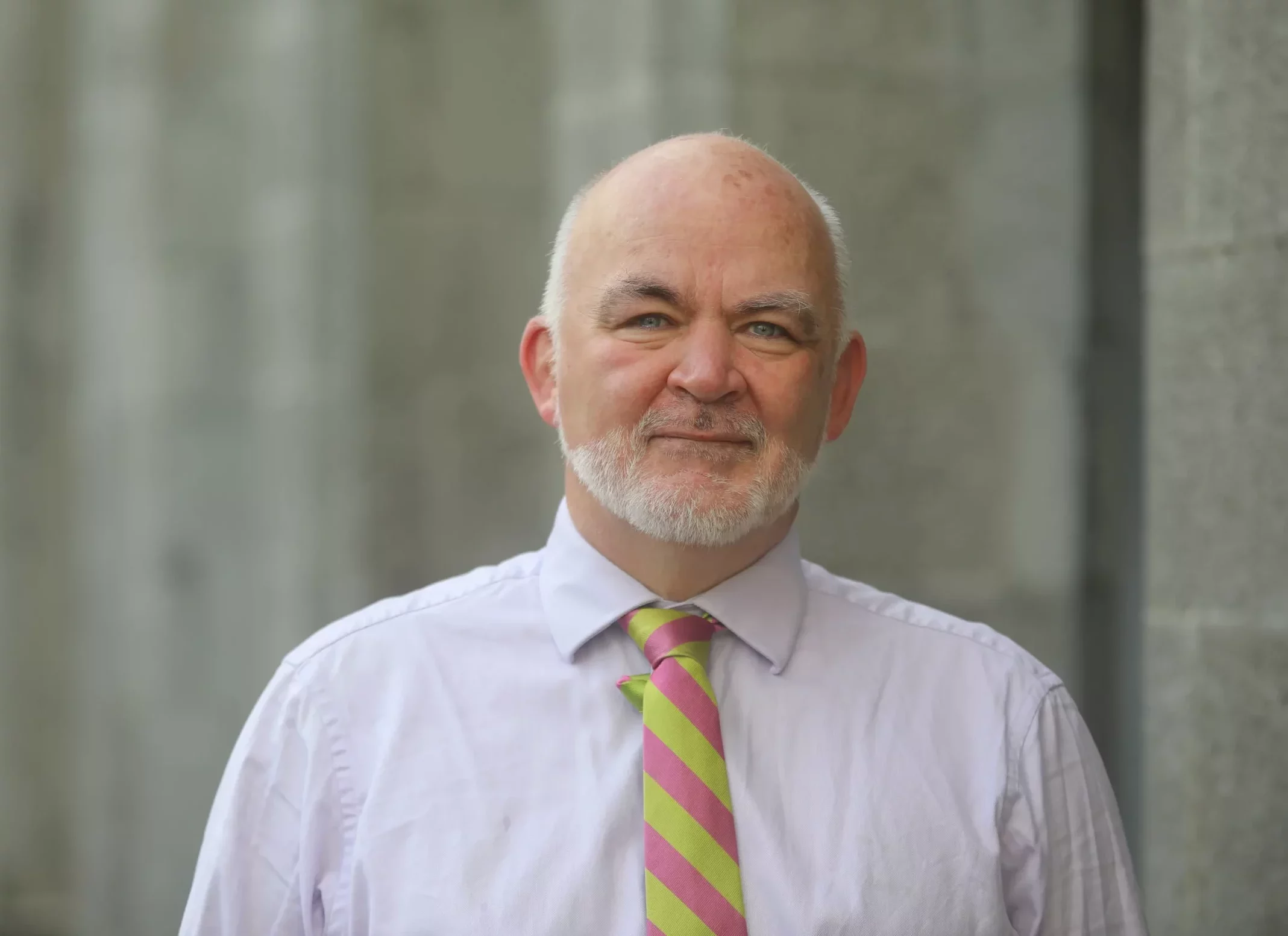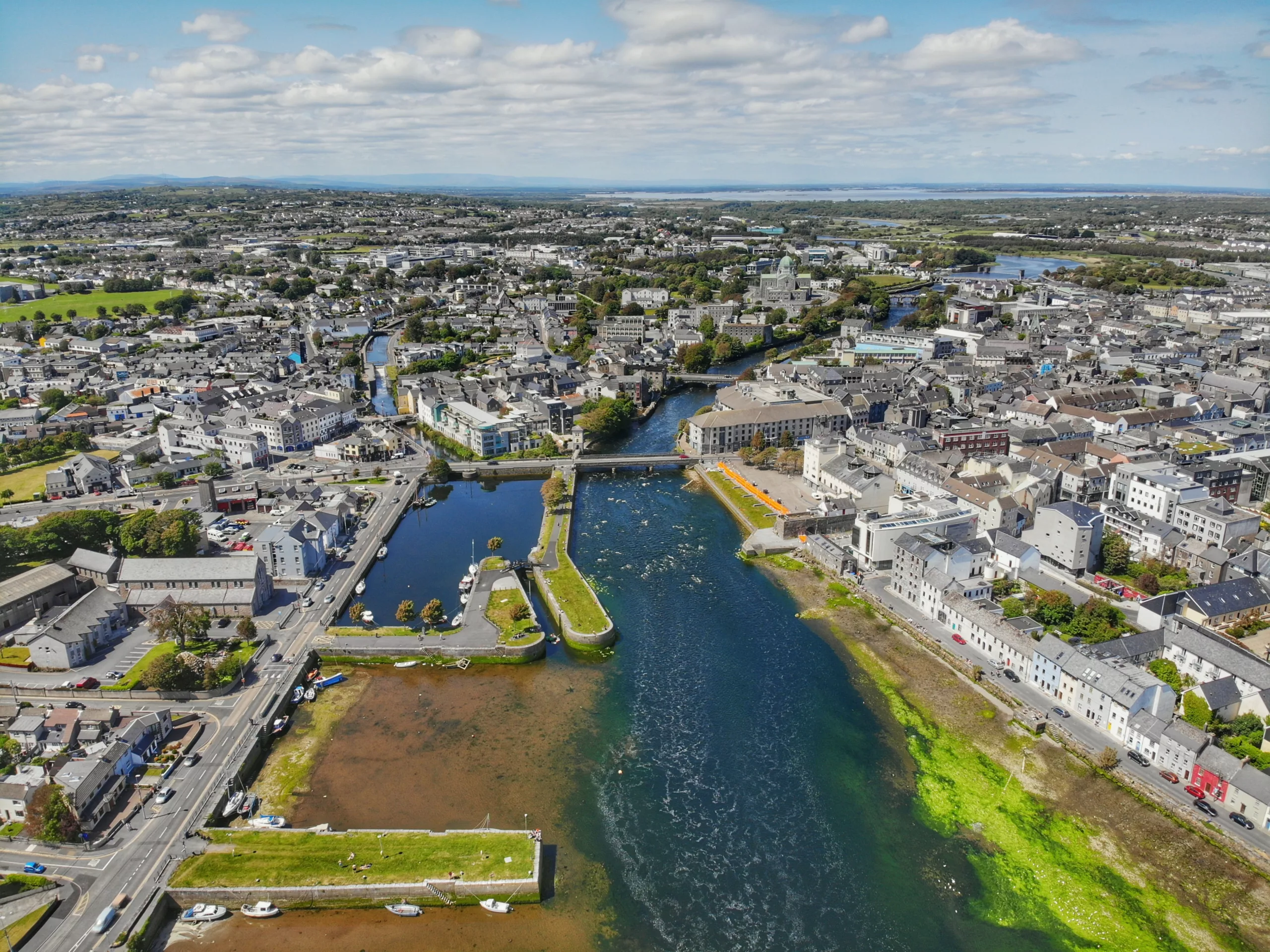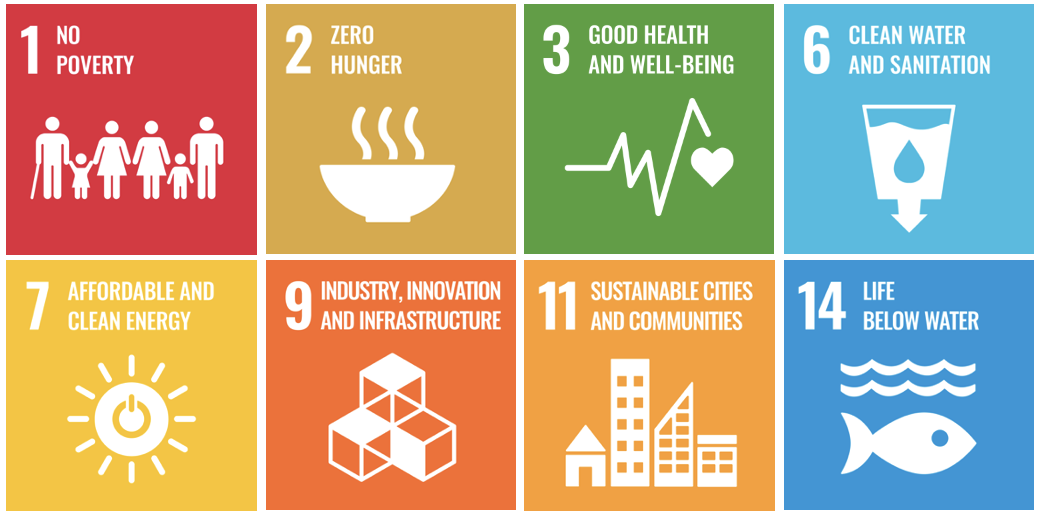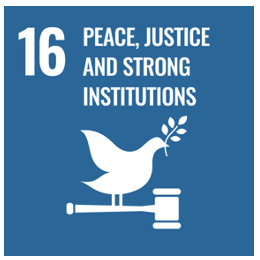
In today’s hyper developed and interconnected world, we see isolated actions give rise to global repercussions like never before. As a framework for addressing global issues, the UN Sustainable Development Goals are a call to action for universities to consider the wider impact of their research. Here VP for Research & Innovation, Prof James Livesey explains how the SDGs have inspired a new approach to research strategy and prioritisation.
Cois Coiribe: How does the university integrate SDGs into the overall research agenda?
James Livesey: It’s easy to dismiss SDGs (UN Sustainable Development Goals) as another buzzword, but these goals matter. They provide a blueprint and framework through which we can address global issues. We need to consider the SDGs in the wider context of the green and just transitions. Green and just transitions are other terms that may have lost their impact from overuse. They ask us to develop new criteria of assessment for everything that we do. It means that we have to work out – not just new ways of doing things – but also what is worth doing. People who work in universities are often passionate about their own particular field. We are now asking researchers and academics to lift their eyes and ask, what is the wider context? One of the best things about the SDGs is that they offer an agreed international set of metrics. Many have poured thought into these metrics, and they help us decipher what is worth doing in the collective drive towards a more resilient planet. These metrics encourage us to ask ourselves: where are we making positive contributions?
For example, our university is the best in Ireland on SDG 14, Life Below Water. That’s no surprise; Galway has been involved in marine science for 50 years. But this engagement has a wider impact. We also live in a region with some of the most important wetlands in Western Europe. We are developing a better understanding of the incredible role of peatlands in carbon sequestration (the capturing and storing of atmospheric carbon dioxide). The SDGs reinforce our strategic intent, giving shape to what was our own ambition to begin with. With this external signal, we’re clear on where we can make a difference.
Internally, the SDGs also help to fairly explain our decision making around scaling and support. Support for research comes down to a set of criteria to which we’re all committed. However, the SDGs as a quantitative measure are not enough. We also need stories. What are some tangible examples of positive change created by our research? We need to get better at telling those stories.
CC: Do the SDGs play a role in determining University of Galway’s key strategic research pillars?
JL: A university has an effective strategy when its internal capacity responds to the opportunities in the external world. Sometimes that world is at your doorstep, sometimes it’s on a different continent. The only developed industrial cluster in Ireland currently is MedTech, in Galway. Galway is at the centre of one of the five top MedTech (Medical Technology) hubs in the world, creating large-scale impact in SDG 3 (Good Health and Wellbeing). When you look at the studies on the role of the university in providing talent, ideas and spinouts, our impact is clear up and down the stack. So, committing to MedTech is the easiest decision we’re going to make. MedTech projects Galway on a global stage, particularly through its international corporations based in Galway.
SDG 11, Sustainable Cities and Communities indicates our strength in urban studies, and the impact we are having in this domain. Our scores signal new interesting capacities developing there. Galway has grown more than any other Irish city over the last 30 years. We are all aware of the specific challenges we face in Galway, but we also have enormous amounts of social capital to confront those challenges. Similarly to SDG 11, SDG 14 crystallises an intuition that we already have.

The next pillar we’re looking at is Creativity. The university has a well-deserved reputation for nurturing creative talent. Galway City has had tremendous success with things like Druid Theatre and the Galway International Arts Festival. What we haven’t really developed to the extent that we have developed in MedTech are modes of organisation that take advantage of Galway’s position as a small city with the capacity to mobilise creative talent internationally. To give one example of the international potential of creativity in Galway: Druid’s three O’Casey plays were recently brought to New York to critical acclaim by the NYT and others. For the university then, creativity is a promising challenge. We’re now asking: what do we need to do to grow our work in creative practice and research to the same amplitude as MedTech?
Our third pillar, Marine Sciences, is a fascinating area. Although we are best in the country in SDG 14, the industrial cluster for the marine sciences is not yet developed. So, we are now creating a hub for the new blue economy in Galway. In GPD terms, the current marine economy is not huge but given the resources to be extracted in the next 40 years, we know that this area will be extremely important 40 years from now. Our ability to live in harmony with marine life is going to determine whether or not we manage the green transition. If we go about it right, we could put Galway at the spearpoint of that economy.
CC: With that in mind, can you tell us more about Ireland’s construction technology centre, Construct Innovate?
JL: The importance of Construct Innovate lies in its capacity to drive sustainable innovation, boost competitiveness and help drive economic development within Ireland’s construction industry. When the national housing emergency occurred, we already had a cluster of brilliant engineers and scientists ready to offer leadership in solving the housing crisis. Don’t forget: this is not an issue to be solved across one axis. Construct Innovate is not only looking for solutions to housing scarcity; they’re doing so in a way that meets the demands of the green transition. This a wonderful example of how a university is a store of social capital. You never know what kind of expertise you will need, but that expertise is usually there in the university, ready to be deployed when the moment arrives. Research prioritisation is also key. We focus on particular areas, but that doesn’t mean that the standard will be different elsewhere. As a comprehensive research university, the standard is the same across disciplines; it’s just that we have scale in particular areas.
CC: What surprises you about the kind of research we do?
JL: I was surprised by the efficacy of social programmes like Active* Consent. Active* Consent is co-created and inspired by leading research with enormous impact, and what’s more, the actual research-led play is a great work of art. When I was in the Cork Theatre Company in the ’80s, we competed with Druid and always lost. I knew that Galway was good at theatre, but I wasn’t aware of the power and efficacy of this kind of emerging interdisciplinary work.
Then we have Astrophysics. This big systems modelling carried out in Mace Head relates to the ICHEC (Irish Centre for High-End Computing), and links back into Insight (the Insight SFI Research Centre for Data Analytics). We haven’t completely connected those pieces together yet, but that space is going to be very impactful. With Ireland now aligning with ESO (European Southern Observatory) and CERN (the European Organization for Nuclear Research), this work will find new domains and become more visible in the future.
We are not always leading, however we are always excellent. You can’t lead out on all 17 SDGs; that’s just not how it works. There is a strong correlation between a country’s wealth (GDP) and which goals are covered in research. I think we could purposely address the goals that attract a stronger focus in the Global South, such as SDG 1 (No Poverty), SDG 2 (Zero Hunger) or SDG 6 (Clean Water and Sanitation). Western countries don’t tend to prioritise the issues that are much more visible and pressing in the Global South. Charles Spillane’s work in food scarcity at the Ryan Institute is important in this sense. We now need to link that research with our internationalisation work in Global Galway.
In the next iteration of our SDG strategy, I would love to seek out partners in the Global South that would help us lean into those goals. As a developed, modern economy, we’re going to perform well in SDG 7 and SDG 9 anyway, so why not begin to act on the other issues that we haven’t planned for? In the future, I would particularly like us to excel in 16: Peace, Justice and Strong Institutions. That’s the one that will make a real difference in the long term.
Learn more about University of Galway’s research impact case studies here.

